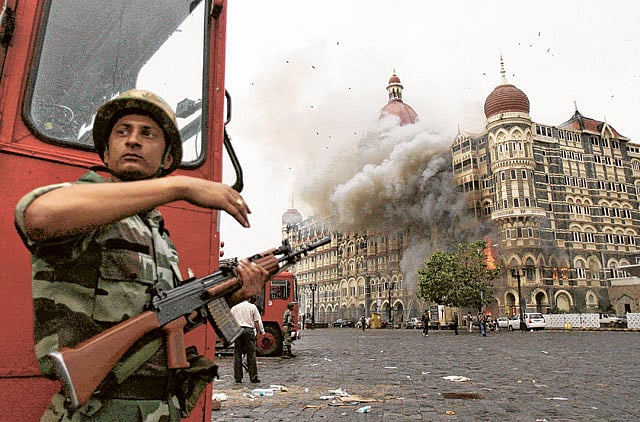New Delhi: India's Supreme Court on Monday stayed the death sentence handed down to the lone surviving gunman from the 2008 Islamist attacks in Mumbai, pending an appeal hearing.
"This case has to be heard on top priority," judge Aftab Alam told the court. "It is the demand of the judicial system that we have to hear this appeal."
Pakistani national Mohammad Ajmal Amir Kasab, one of 10 gunmen who laid siege to Mumbai for nearly three days killing 166 people, was convicted in May 2010.
Guilty of waging war against India
Kasab was found guilty of a string of crimes including waging war against India, murder, attempted murder and terrorist acts after a trial at a maximum security prison court in Mumbai.
The first appeal by the 23-year-old from a poor farming area in Pakistan's Punjab state failed in February, when the state high court in Mumbai confirmed both his conviction and death sentence.
India reserves executions, which are carried out by hanging, for the "rarest of the rare" offences.
During his trial, the prosecution produced fingerprint, DNA, eyewitness and camera evidence showing Kasab opening fire with an AK-47 machine gun and throwing grenades at Mumbai's main railway station on November 26. Some 52 people died and 109 others were wounded in the bloodiest episode of the multiple attacks.
Senior police killed
A number of senior police officers, including the head of the state anti-terrorism squad, were killed as the gunmen fled the scene of the carnage.
Three luxury hotels, a popular tourist restaurant and a Jewish centre were also attacked before security forces finally overwhelmed the attackers and regained control of the city.
Prosecuting lawyer Ujjwal Nikam, who will appear for the state of Maharashtra at the appeal, described the Supreme Court's decision as "routine" despite the weight of prosecution evidence against Kasab.
'It's not unusual'
"It's not unusual," Nikam told AFP. "I will be there to argue the case." Kasab's lawyers previously claimed that evidence and witnesses were manipulated and that his original legal team did not have enough time to prepare a defence.
The appeal hearing will begin on January 25, the two-judge bench said. India has accused the banned, Pakistan-based Islamist group Lashkar-e-Taiba of being behind the Mumbai attacks, which led to the suspension of fragile peace talks between the two neighbours and rivals.
If the Supreme Court upholds the verdict and sentence, Kasab - who is in jail in Mumbai - can appeal for clemency to Indian President Pratibha Patil as a last resort.
Pleas for clemency
Most death sentences in India are commuted to life imprisonment, and convicts can sit on death row for years awaiting a final decision on their pleas for clemency.
But the Mumbai attacks horrified the nation as each development unfolded live on television, and there have been public calls for Kasab's execution to be expedited.
Afzal Guru, who was convicted of conspiring with the gunmen who attacked India's parliament in 2001, killing 10 people, has been on death row for nearly a decade. His appeal against his death sentence was dismissed by the Supreme Court in 2006.
Most recent execution in India was 2004
The last execution in India was in 2004 when a 41-year-old former security guard was hanged for the rape and murder of a schoolgirl.
In May this year, Patil unexpectedly rejected a mercy petition from a murderer in the northeastern state of Assam, leaving the state scrabbling to find a hangman.
Many of the small number of known hangmen nationwide have either died or retired in recent years.
Sign up for the Daily Briefing
Get the latest news and updates straight to your inbox
Network Links
GN StoreDownload our app
© Al Nisr Publishing LLC 2025. All rights reserved.
